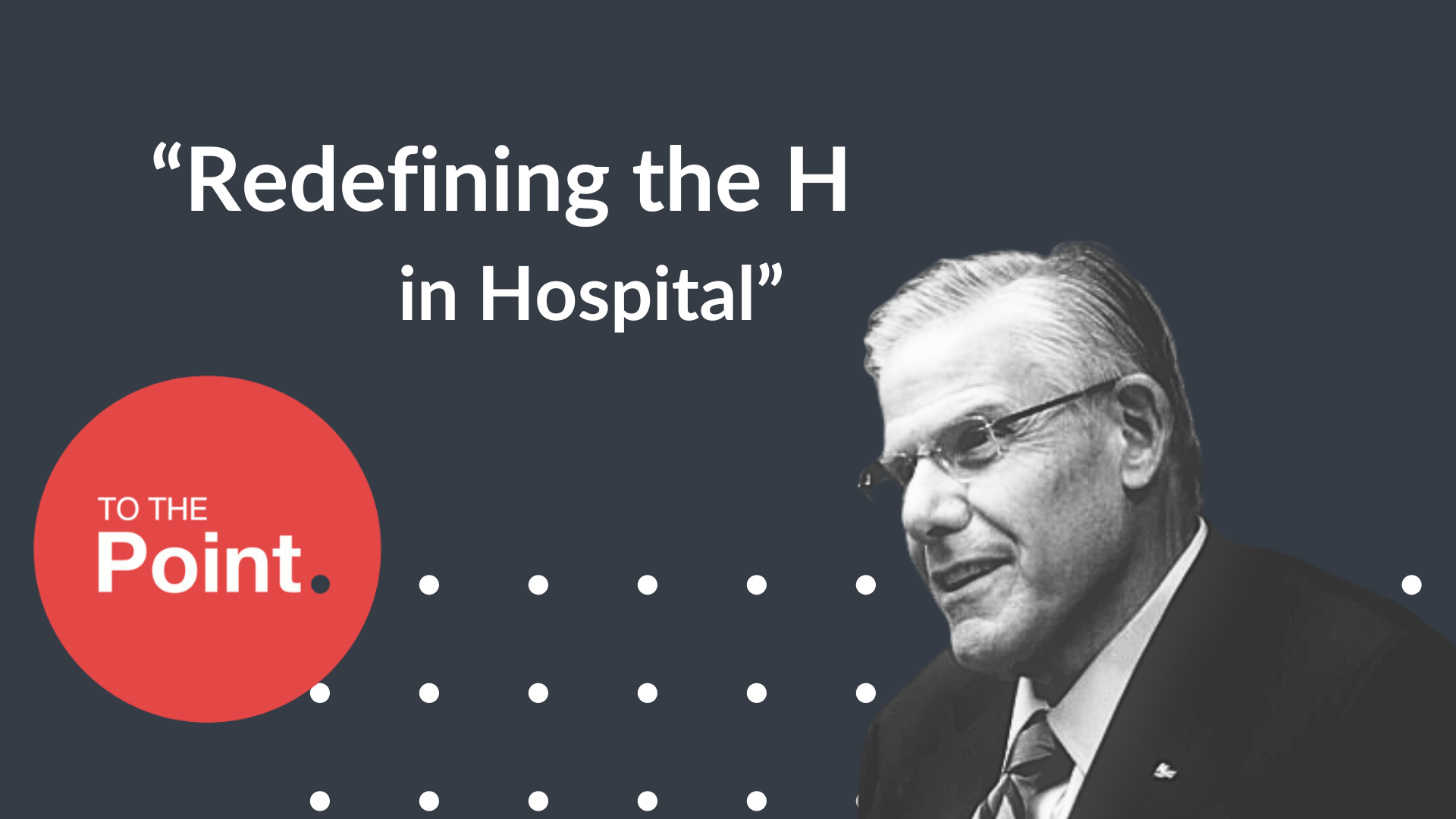Rick Pollack, CEO of the American Hospital Association (AHA), joined ‘To The Point: A Pinkston Podcast’ to break down the future of American healthcare. From the unique challenges facing urban and rural hospitals to harnessing the power of artificial intelligence and addressing cybersecurity, Pollack offered a comprehensive look at the healthcare landscape and the solutions leaders need to prioritize.
Market Pressures
Pollack outlines how hospitals face increasing competition from specialized facilities and service providers that he believes cherry-picks patients, leaving hospitals to handle more complex and less profitable cases.
“They’re coming in, and they have very deep pockets. The reality is that they only take well-insured people. They don’t take uninsured people. They don’t take Medicaid. Very often, some of them don’t take Medicare; they take the easy cases, and then we’re left with everything else,” said Pollack. “And in order for us to maintain the infrastructure that’s necessary to provide 24/7 care…we take care of anybody who walks through the door. That isn’t what I would call a level playing field, and the economics of trying to sustain our infrastructure that serves everyone while you have these other players coming in, you know, is a real problem, and it makes it very challenging to survive.”
Policy and Regulatory Hurdles
In a polarized political environment, navigating bipartisan solutions is increasingly challenging. Pollack pointed out that budget-driven policymaking often leads to short-sighted decisions that may not be in the best interest of patients or healthcare providers.
Pollack also discussed how the current payment system revolves around the ‘fee for service’ model but explained that healthcare is increasingly moving towards ‘value-based payment’ and focusing on preventative care. In order to treat patients more effectively though, Pollack said the healthcare system needs to address the ‘fractures’ that exist – particularly in behavioral health, government underpayment, broken supply chains, and insurance companies denying care or delaying payments.
Rural Healthcare & Telehealth
Pollack emphasized the unique challenges facing rural hospitals, including low patient volumes and difficulties attracting top talent. However, he also highlighted opportunities for rural hospitals to excel in “managing chronic conditions” and creating local networks of care so that people do not need to leave their community.
“Over the years, Congress has been very attentive to..healthcare in rural areas,” said Pollack. “There are all these separate designations to try to make rural hospitals viable. You can be a sole community provider. You can be a critical access hospital. We have adjustments for low-volume providers. We have adjustments for Medicare-dependent hospitals. We created a rural emergency hospital designation. There’s a whole series of things designed to address rural hospitals. The other thing is half of the rural hospitals in the country are connected to larger systems, so they have the ability to benefit from being part of a larger entity.”
Artificial Intelligence in Healthcare
Pollack acknowledged the many ways artificial intelligence will likely improve hospital efficiency and patient care.
“There are opportunities to enhance workflow…improve capacity management…prevent adverse events and improve the patient journey,” said Pollack. “[Also], being able to go online and schedule your appointments and get information…support our workforce in terms of training…increase consumer or patient engagement…data and analytics…when it comes to public health and looking at patterns and identifying potential issues.”
Pollack stressed the need for transparency and safeguards against bias. He noted, “There’s a real need to ensure that there’s not bias in the information that’s going in that could create even more problems when it comes to health disparities.”
The Growing Cybersecurity Threat
Pollack highlighted the increasing frequency and severity of cyberattacks on hospitals. He emphasized that these attacks are not just economic crimes but “crimes against human life” due to their potential to disrupt critical care.
“[The FBI has] actually elevated it to a crime against human life, because when you can’t take ambulances, or you can’t do lifesaving surgeries, and people have to wait for other important procedures, it is life-threatening,” said Pollack” The other thing that is really difficult is that the the bad guys are criminal gangs in nation-states, and it’s hard for some of our law enforcement agencies to get their arms around them. Now, they, no question, have snuffed out more than we know about – but this is China and this is Russia, and this is North Korea and this is Iran.”
Pollack said AHA has been working with its members and government agencies to button up security and develop cybersecurity production goals.
Redefining the ‘H’ in Hospital
Pollack envisions a future where hospitals extend beyond their physical buildings, offering a range of services to meet patients where they are. “Hospitals are more than just a building…We’re providing post-acute care, we’re providing home care, we’re providing care in hospital-based clinics off-site,” he explained, emphasizing the need to make healthcare more convenient and accessible.
“When we talk about redefining the ‘H,’ it’s everybody think[ing] about the hospital as just a place for taking care of the sick and injured. We also want to emphasize that we’re about keeping people healthy.”
